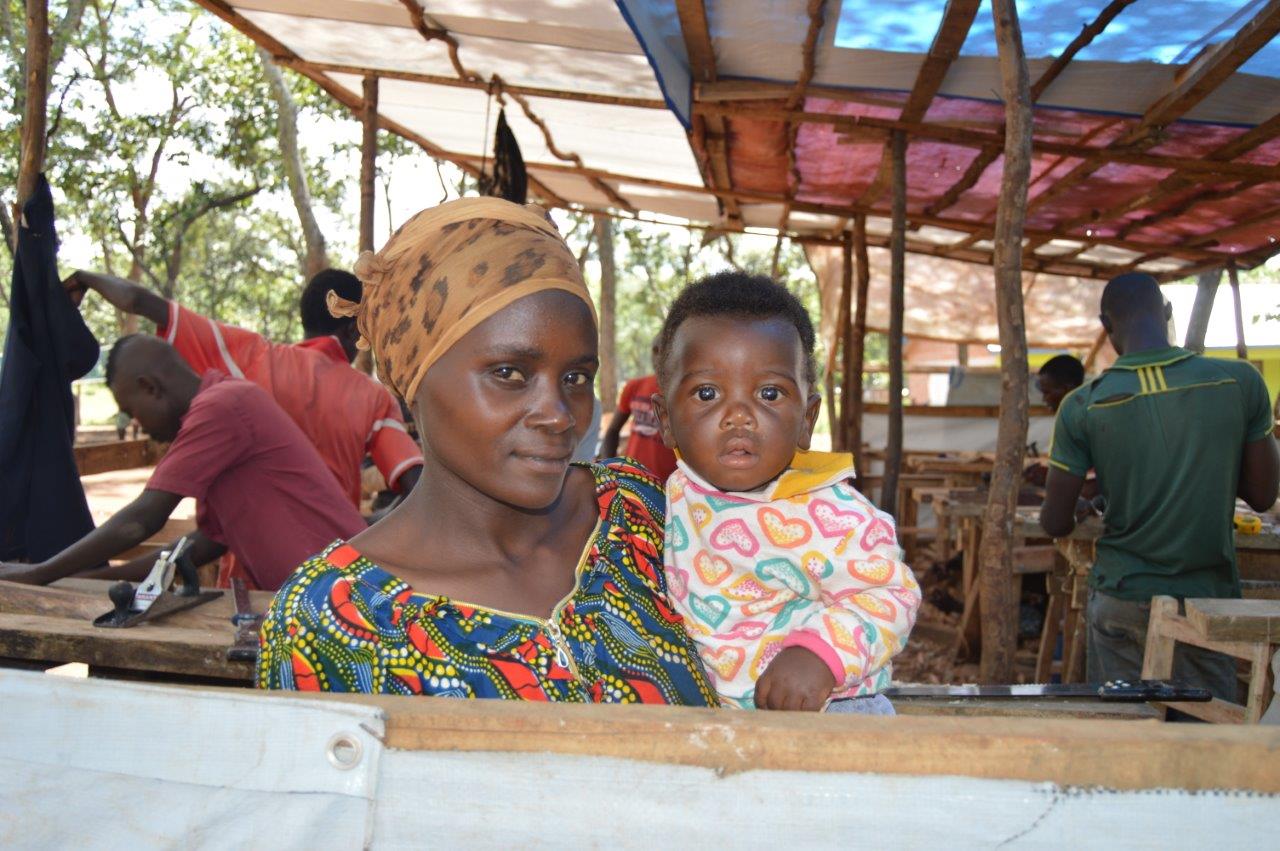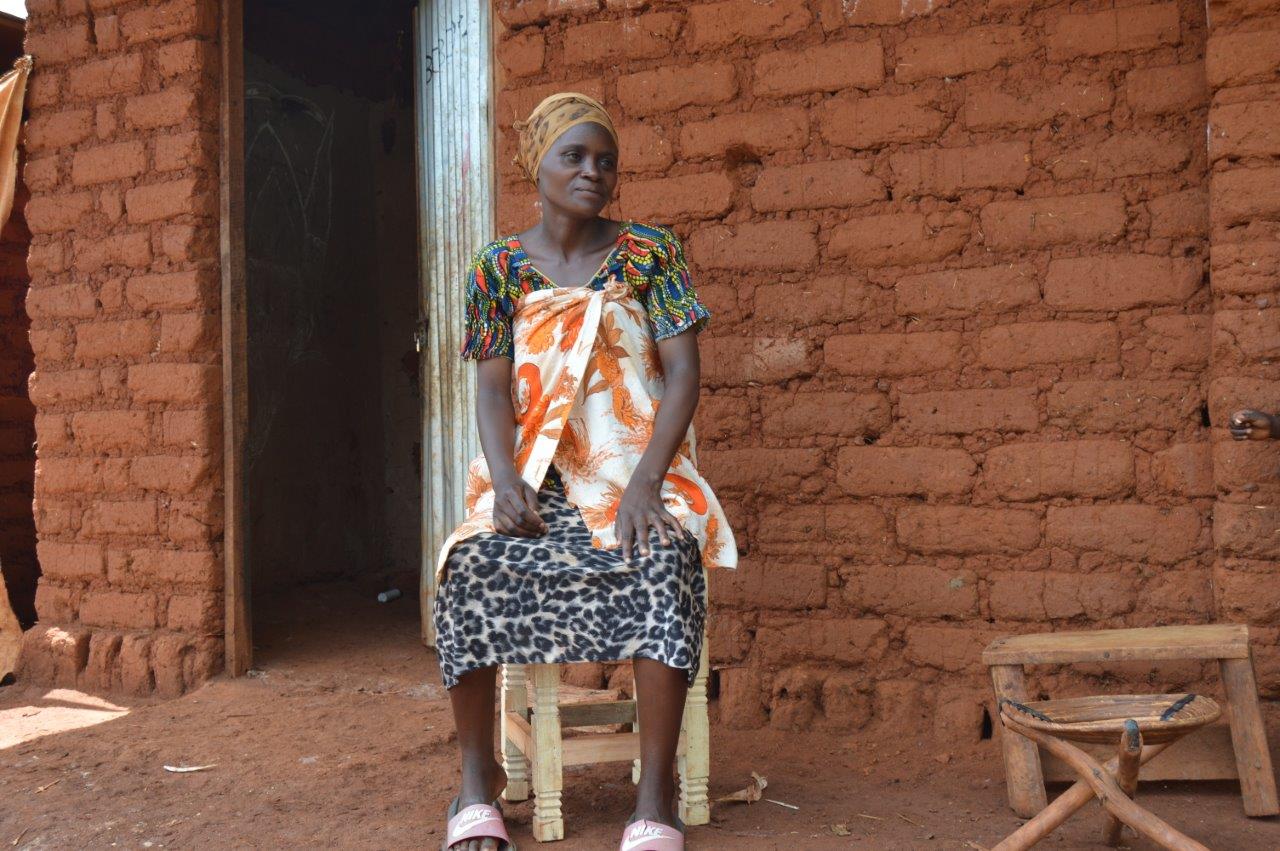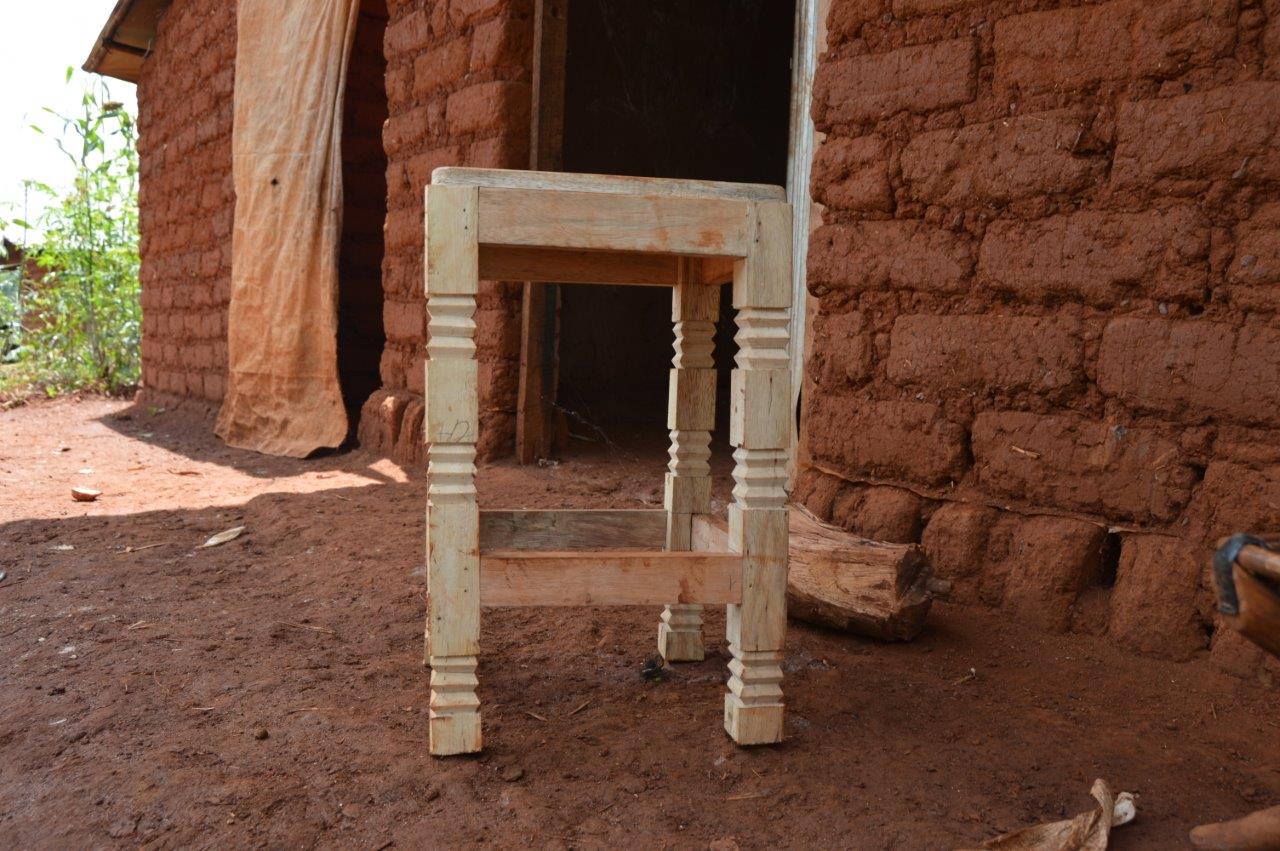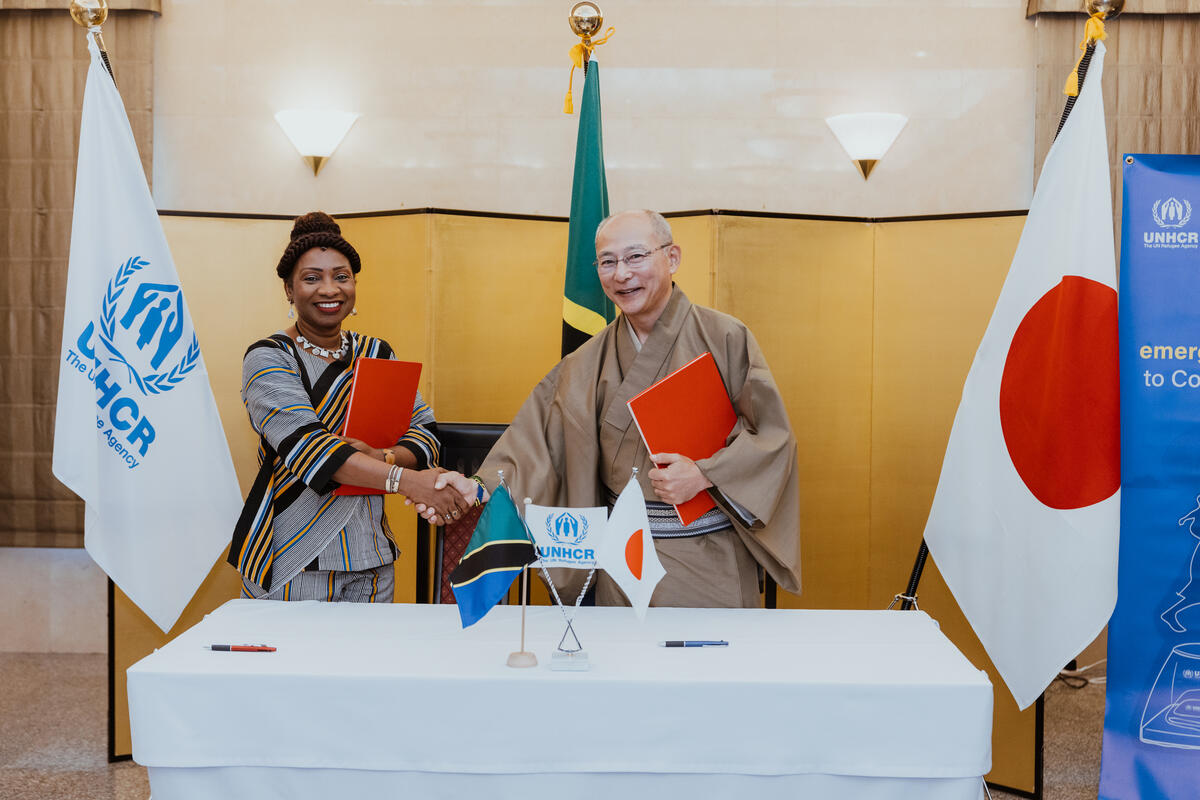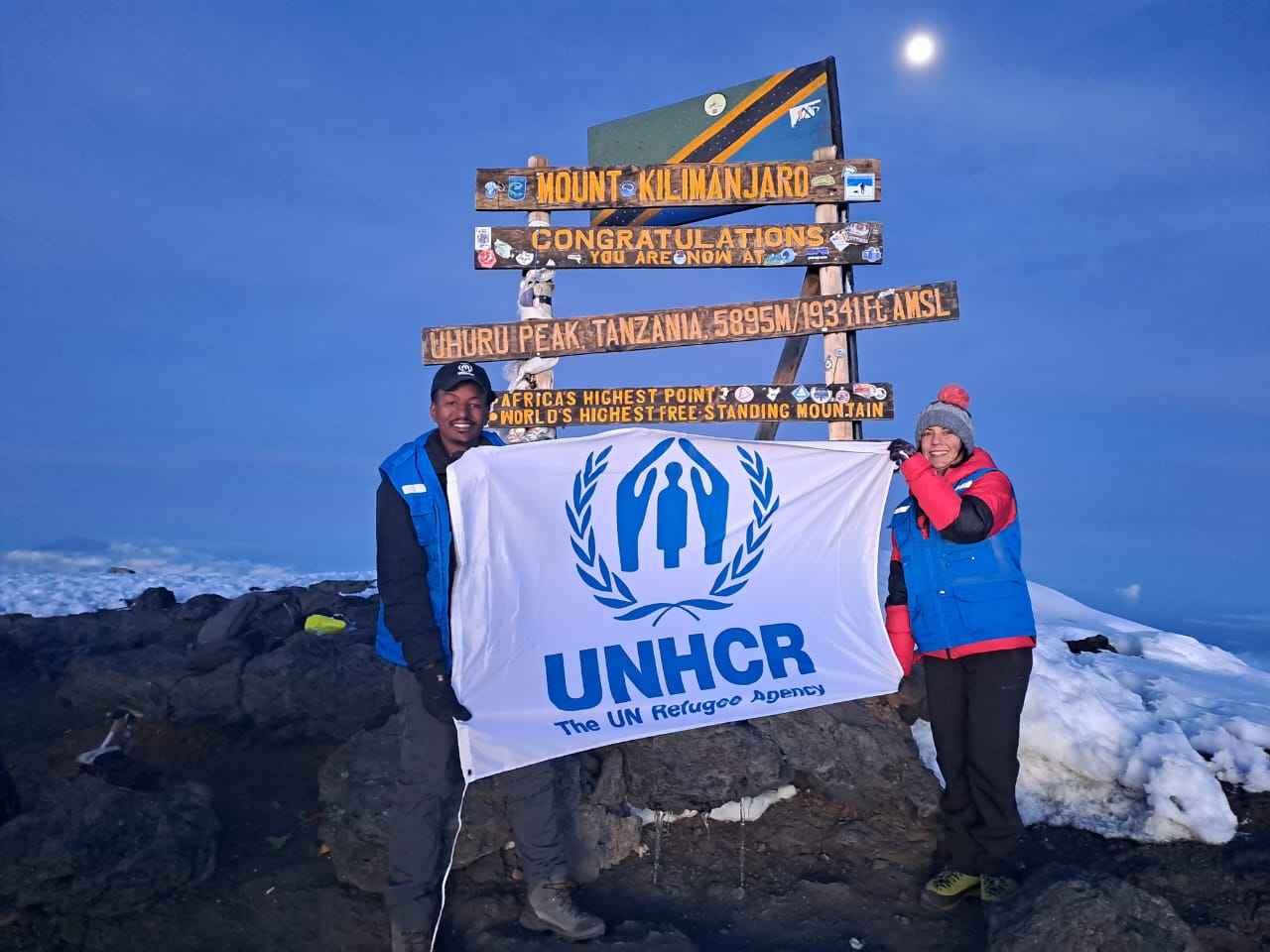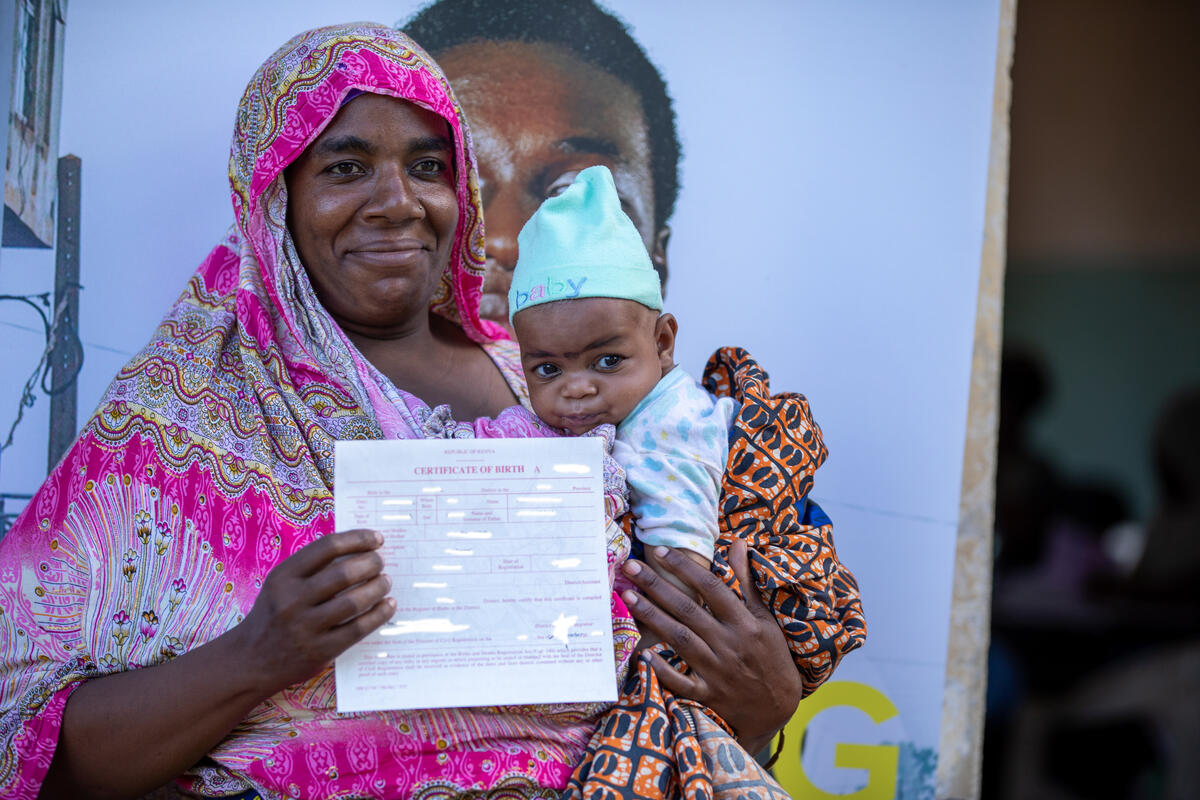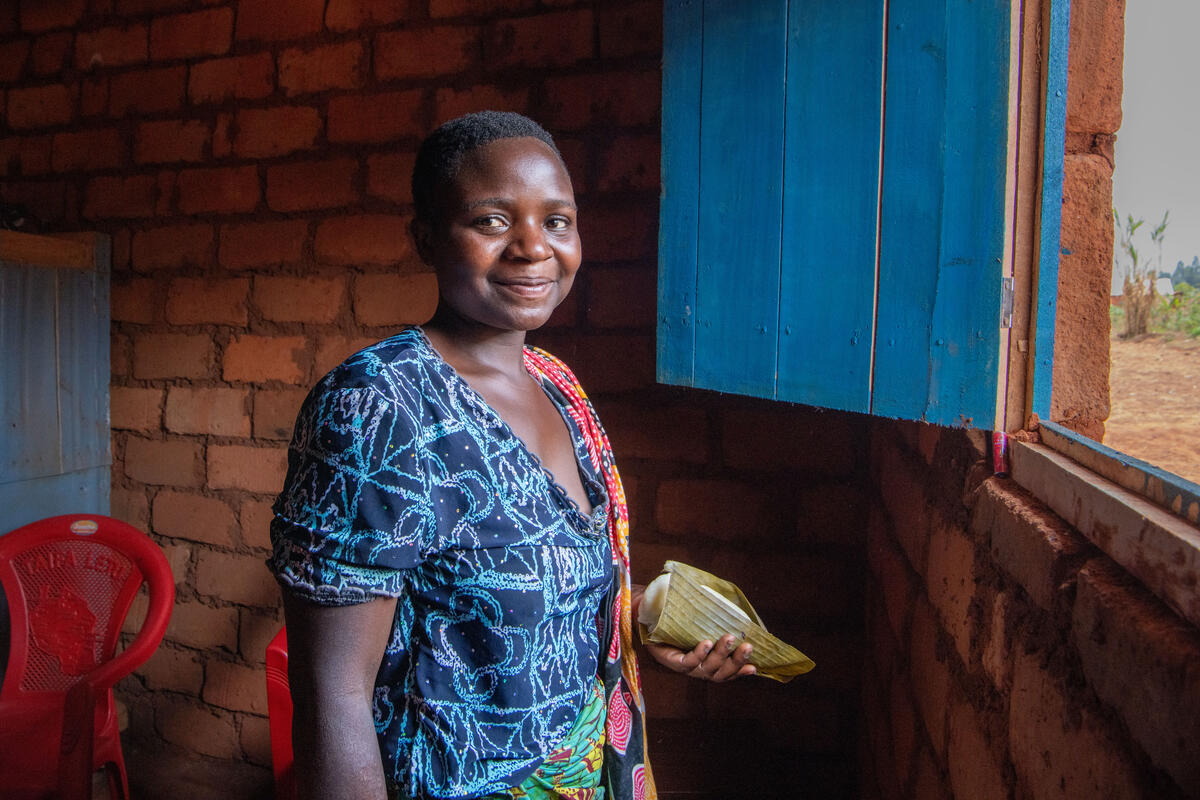Burundian mother stands out in male-dominated carpentry class in Tanzania

Burundian mother stands out in male-dominated carpentry class in Tanzania
Wood shavings fall softly to the ground as Maritha moves a plane swiftly over a plank of wood. Her brow is furrowed in deep concentration as she works in the carpentry training centre in Nduta camp, Tanzania.
As one of only two women in a class of 30 students, the 20-year-old clearly stands out.
“I always wanted to be a teacher,” she says, taking a break from the lesson. “But the conflict back home forced me to abandon my studies and escape.”
Maritha fled to Tanzania in 2016 when political turmoil in Burundi resulted in mounting insecurity across the country. Faced with a new life in the camp, she tried to find work so that she could take care of her young son. She was not successful. Her frustrations increased when she realized that she couldn’t even afford the furniture sold in the camp.
"I decided to take matters into my own hands – I was going to become a carpenter.”
“I decided to take matters into my own hands – I was going to become a carpenter.”
She signed up for carpentry classes at the vocational skills training centre funded by UNHCR, the UN Refugee Agency and managed by its partner agency, Plan International.
She recalls how people tried to dissuade her and laughed at her for wanting to train in a male dominated sector.
“People laughed at me when I signed up,” she notes wryly. “They said carpentry is a man’s job and I couldn’t do it.”
But she was undeterred and remained determined to learn the craft.
“People laughed at me...they said carpentry is a man’s job and I couldn’t do it.”
“This is an unusual thing especially here in the camp, to find women exploring vocations that are regarded as male professions,” explains Takaaki Miura, UNHCR’s Associate Livelihood Officer.
She has also proved to be a fast learner and is among the top students in her class.
“She is one of my most promising students,” says Ndikumana Pierre, one of the vocational trainers. “She learns fast and makes an effort to understand everything in class.”
Juggling motherhood with her new found passion has not been easy though, especially when her son falls ill.
“I can’t leave him alone at home because my husband also works. When he is sick, I can’t attend classes,” she adds.
Despite these challenges, she remains undeterred. She is one of less than ten women interested in learning and exploring this opportunity since the carpentry programme started in the three camps in Tanzania.
“She is one of my most promising students.”
Now in its second year, the programme has already trained 59 men who’ve graduated from Nduta and Mtendeli camps. The training runs for six months with classes five days a week. After successfully completing the course, students form groups of five and receive start-up kits and US$49 worth of carpentry tools and materials to set up their own businesses.
“The programme aims to provide the students with economic independence,” says Jerry Mlembwa, the Youth Coordinator of Plan International. “They are able to meet their basic needs.”
With a population of 110,000 refugees, Nduta camp has a potential market for quality goods and services in high demand like furniture.
“This is why we offer skills training for youth like Maritha who are so keen to learn,” explains UNHCR’s Miura.
Other livelihood programmes include bread making, hairdressing, tailoring, catering, phone repairs and ICT. However, job opportunities for refugees are very few limited due to lack of freedom of movement, right to work and access to financial services. UNHCR continues to advocate for policy change while also supporting vocational and business trainings across the camps in Tanzania.
“The programme aims to provide the students with economic independence.”
Maritha’s class, which has 60 men, will graduate in a few weeks. She is hopeful that after graduating she will finally have the economic independence she has been yearning for.
“I will be able to buy food and clothes for my child,” she says.
She also sees its potential to not only make a huge difference for her and her family but for other refugees.
“I want to not only make my own furniture and have a source of income but to teach other refugees,” she adds.


